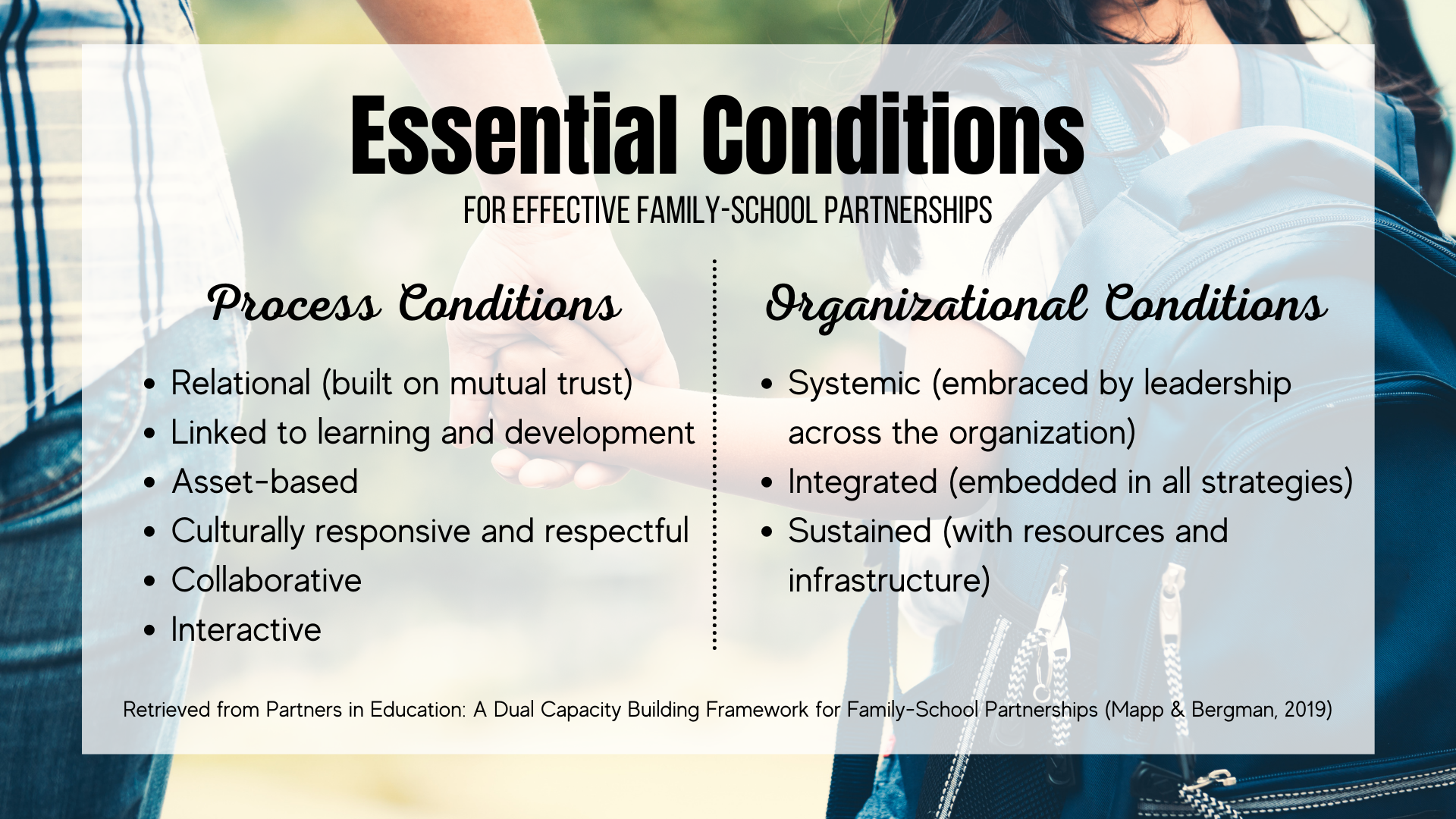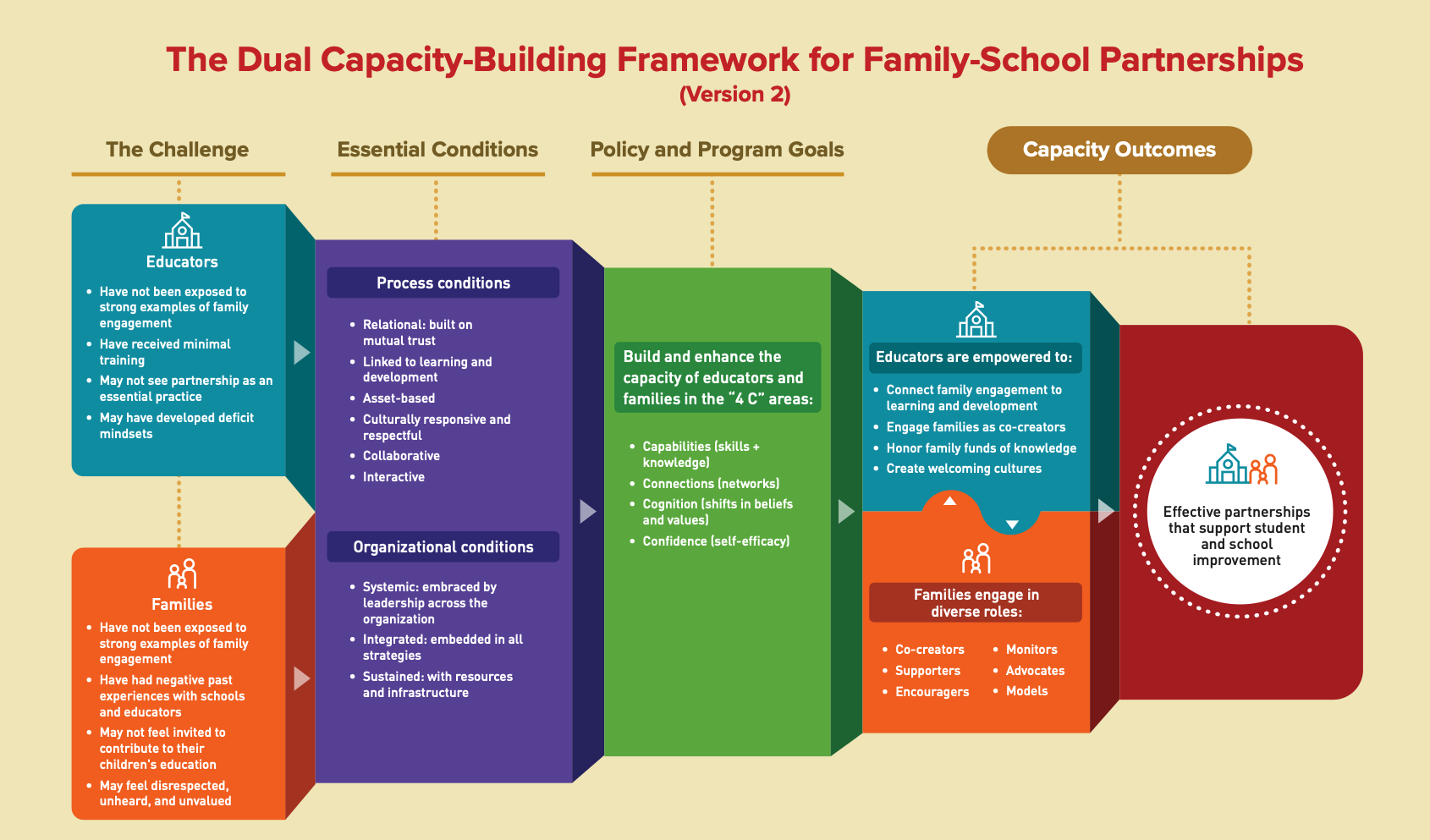Essential Conditions for building effective family-school partnerships include both process and organizational conditions.
"Research suggests that certain process conditions must be met for adult participants to come away from a learning experience not only with new knowledge but with the ability and desire to apply what they have learned...The term process here refers to the series of actions, operations, and procedures that are part of any activity or initiative. Process conditions are key to the design of effective initiatives for building the capacity of families and school staff to partner in ways that support student achievement and school improvement" (p. 9, Mapp & Kuttner, 2013). To this end, any initiatives aimed at building the capacity for effective partnerships must be:
- Relational (built on mutual trust)
- Linked to learning and development
- Asset-based
- Culturally responsive and respectful
- Collaborative
- Interactive
In addition to process conditions, important organizational conditions must be met "in order to sustain and scale these opportunity efforts across districts and groups of schools" (p. 9, Mapp & Kuttner, 2013). Organizational conditions must support fidelity, sustainability, and scale-up of initiatives designed to bolster family-school partnerships. Initiatives must also be:
- Systemic (embraced by leadership across the organization)
- Integrated (embedded in all strategies)
- Sustained (with resources and infrastructure)

How can a MTSS framework support both schools and the families they serve to address the Essential Conditions required to build capacity for effective engagement?
- Successful implementation of the MTSS framework includes mutual trust amongst stakeholders who want to see what's best for students and the school. To establish an effective family-school partnership, it is essential that this mutually trusting relationship be extended to and reciprocated by families.
- The MTSS framework is strongly aligned to learning and development, as evidenced by its primary goal of school improvement. Additionally, a renewed focus on assets is critical to both MTSS as well as the Dual Capacity-Building Framework for Family-School Partnerships.
- A key component of MTSS involves practices that are evidence-based, culturally- and linguistically-responsive, and matched to student need. This aligns tightly with the essential condition of culturally respectful and responsible initiatives aimed at increasing family-school partnerships. When practices for families and students are respectful, responsible, and appropriately matched to the population(s) of the community, school and student improvement can flourish.
- Through the work of MTSS Rhode Island, substantial effort is devoted to improving the organizational conditions for systems change to take place. This includes involving leadership in understanding the importance of MTSS, integrating the components of the framework into the existing work, and sustaining the work through resources such as time and training. The Dual Capacity-Building Framework for Family-School Partnerships also includes these conditions as essential organizational factors when engaging in family-school partnership work.
-

The Challenge
Return to The Challenge for a refresher on the capacity challenges both schools and families face.
-

Policy and Program Goals
Review the Policy and Program Goals needed for effective family-school partnerships to further your understanding of the importance of creating and setting goals for family engagement.
-

The Framework
For more resources explaining the Essential Conditions, visit the Dual Capacity-Building Framework for Family-School Partnerships Essential Conditions page.
2 From Mapp, K.L. & Bergman, E. (2019). Dual capacity-building framework for family-school partnerships (Version 2). Retrieved from: www.dualcapacity.org.
